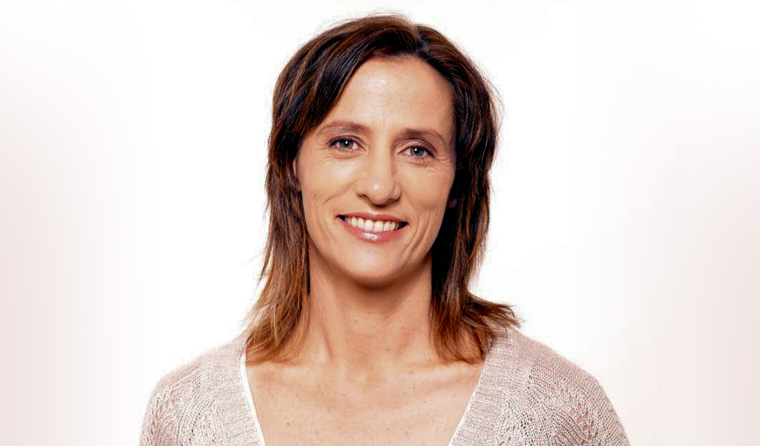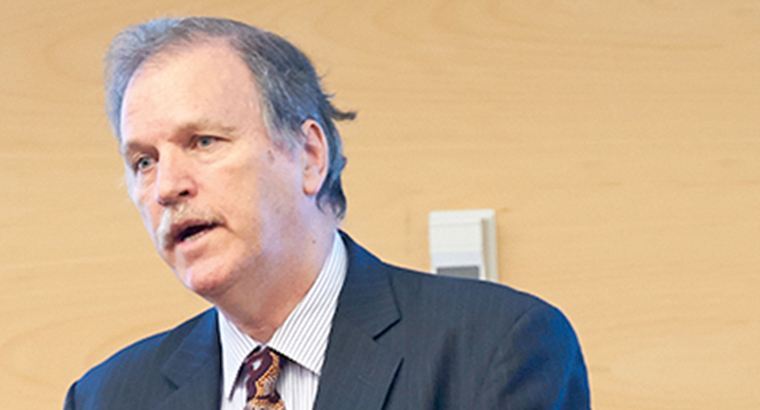Feature
How can GPs encourage continuity of care?
Research shows continuity of care leads to better health outcomes. But in a time-poor and highly-mobile age, how can doctors actually encourage patients to keep coming back? Three long-time GPs give their views.
 Genuine continuity of care is seen by most as a core feature of high-quality primary care.
Genuine continuity of care is seen by most as a core feature of high-quality primary care.
For Dr Hester Wilson, treating patients over many years is one of the perks of the job.
‘Seeing people over time, getting to know them, their family and kids – it’s one of the real joys and privileges of being a GP,’ she told newsGP.
‘That ongoing relationship is very important. When patients find a GP they really like, they’re really loyal. If they move house, they’ll keep coming even if it’s a long distance.’
But Dr Wilson, Chair of the RACGP Specific Interests Addiction Medicine network, is well aware that many of her long-term patients have another GP they visit.
‘They don’t see it as a problem if they go to a medical centre where they don’t have a relationship. For them, it’s convenience,’ she said.
‘They get a repeat script, or go there with coughs and colds. They might go there if I’m not available. I don’t think this is necessarily a bad thing.
‘But the tricky part is that a script repeat might not be that simple.’
Dr Wilson will often have an open discussion with patients who see several GPs.
‘Don’t be afraid to have a conversation around fragmented care,’ she said.
‘I might say to them, “I know you went elsewhere for a script, but I would prefer you see me, if possible, because I know you, and I can check for problems and risks. I understand I’m not always here. But I would like to continue to see you for all your health needs as I’m in a position to understand you over time”.
‘Sometimes there’s the anxiety that you have to solve everything in one consultation. You don’t have to. As you get to know people and the complexities of their lives, you find people don’t present as textbook cases but as human beings, part of a community.’

Dr Hester Wilson believes GPs should not ‘be afraid to have a conversation around fragmented care’ with their patients.
But Dr Wilson stresses the point that general practice is a broad church.
‘Many GPs really like working in, say, the GP section of an emergency department, dealing with patients as they come in,’ she said.
‘Patients will select a doctor that suits them. My patients know I always run late, because people tend to come for serious stuff and it takes more time. Some patients have given up because they hate waiting. But those I continue to see will call and ask how late I’m running.
‘You do attract the people you’re suited to.’
Dr Wilson said another wonderful aspect of general practice is the ability to focus on areas of interest and referring to colleagues in the same practice, which also aids continuity of care.
‘If you don’t like skin incisions, send the patient to a colleague who does. That way the patient is still part of our practice,’ she said.
‘We share our notes, discuss patient concerns and have case conferences for tricky cases.’
Dr Wilson has found that seeing the same patients over a long period can also cause complacency.
‘We might think, this is how the patient always presents. So it’s not a bad idea to get [long-term] patients reviewed by a colleague, to have fresh eyes and another opinion,’ she said.
Maintaining the doctor–patient relationship
Dr Michael Wright has a longstanding interest in continuity of care. Last year he completed a PhD on the therapeutic outcomes of continuity of care, published an AJGP article on the topic and spoke to the ABC’s Health Report.
Dr Wright, Chair of the RACGP Expert Committee – Funding and Health System Reform (REC–FHSR), told newsGP that continuity of care is a core feature of high-quality primary care.
But he acknowledges there are challenges to overcome.
‘It’s potentially getting harder to see the same doctor for all our care as our population gets older and has more chronic and complex disease, and as GPs work in bigger practices and on average work less hours a day,’ he said.
Australian Bureau of Statistics (ABS) data from 2016 shows that almost all Australians aged 45 and over (98%) have a usual GP, and 80% had both a usual GP and a usual place of care.
‘Despite that data, our research showed that over 25% of people reported attending more than one practice. So how do you keep the benefits from a strong doctor–patient relationship in a very mobile population?’ Dr Wright asked.
Like Dr Wilson, Dr Wright believes part of the solution is simply encouraging patients to at least attend the same practice.
‘GPs may need to ask patients, “Am I your usual doctor, or do you go somewhere else?”, Dr Wright said.
‘Now, if you see someone every week, you can be fairly sure you are [a patient’s usual GP]. But others you might see once or twice a year, and if you don’t actively think of them as your patient, evidence suggests you might not provide as much preventive care as they might need.
‘So it’s about asking patients to identify their preferred GP or practice, and for GPs to recognise when they are a patient’s preferred GP.’
Practice staff can also help by asking patients if they have a preferred GP and listing that in the record.
‘The benefits of continuity are twofold,’ Dr Wright said.
‘One is about the stronger relationship between patients and doctors, which might mean you understand each other better and make better shared decisions. I might suggest something for you and you might be more likely to adhere to my recommendations because we trust each other.
‘The second part is about availability of information, so I’m able to see your liver tests from a month ago and the medications you were prescribed.
‘My Health Record will help in sharing test results, but it doesn’t contain consultation notes. That means there are still going to be benefits of going to a practice that has your records and additional information from a GP who knows you well.’
Dr Wright said that while all patients would benefit from having a regular GP, older patients and those with chronic conditions had more to lose from having poorly coordinated care.
Dr Wright suggested patients should seek a GP to whom they could relate feel could keep seeing them – and once they find such a GP, to keep going to the same place.
Developing trust
Scientia Professor Mark Harris believes continuity of care is one of the most fundamental aspects behind the success of primary healthcare.
‘There is good evidence that patients with good continuity of care are less likely to use hospitals, especially those with a long-term condition. Where patients have good continuity, they’re more likely to have consistent care over time and not chop and change,’ he told newsGP.
Professor Harris said patients with sensitive issues are likely to gain particular benefit from having a regular GP.
‘This is where continuity is even more important. If you’re talking to someone around obesity – there’s stigma, it’s a sensitive topic – so you want to do that in the context of a relationship with a person,’ he said.
‘It’s similar for drug and alcohol cessation and mental health issues. But if you don’t know if you’ll see someone again, it’s very difficult to have a long-term plan for their care.
‘That means acute problems are dealt with, but long-term ones are not.’

Professor Mark Harris believes continuity of care is one of the most fundamental aspects behind the success of primary healthcare.
But, according to Professor Harris, relational continuity is increasingly difficult due to population mobility and multimorbidity, requiring multiple healthcare providers.
‘Informational continuity is the other major aspect, so when a provider sees you, they have access to information about the other aspects of your care,’ he said.
‘That’s what gets broken when people move rapidly between practices, or if there’s poor continuity between hospitals and GPs, if there is low-quality discharge information or if the referrals into hospital aren’t good.
‘That can lead to more disruptive care, where things get missed and adverse events occur, such as drugs not being given or dosages change. It can lead to health problems not being identified.’
Professor Harris has found that patients tend to seek more continuity of care as they get older.
‘At 20, the reasons you might go to a GP might be getting a script for contraception or a work certificate or sports injury, so your need for continuity is probably less [for physical issues],’ he said.
‘You’re not thinking about the fact you might need continuity. That creeps up on you as you get older and develop long-term problems.
‘Mental health issues [among young people] are increasing, however, which really requires continuity of care.’
continuity of care health outcomes multimorbidity primary care
newsGP weekly poll
Health practitioners found guilty of sexual misconduct will soon have the finding permanently recorded on their public register record. Do you support this change?